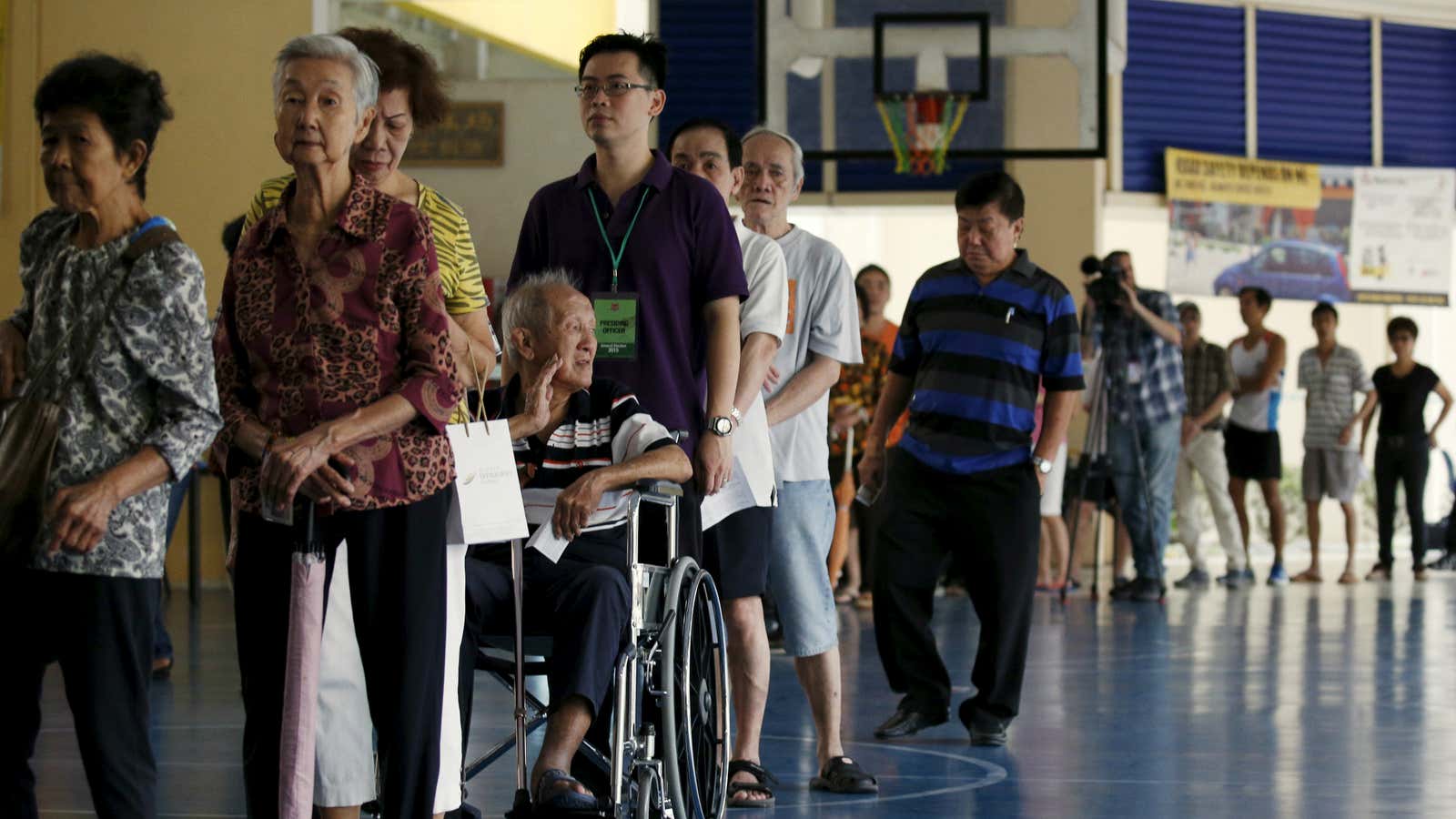Singaporeans are headed to the polls today to cast their votes in an election with a predetermined result. The country’s People’s Action Party (PAP) will win, as it has in every single election since independence.
That doesn’t mean people’s votes won’t count. Election results have been subtly changing over the past few decades, showing the PAP’s gradual decline in popularity. The party—once synonymous with the Singapore economic miracle and miracle-worker-in-chief Lee Kuan Yew—is likely to continue to struggle amid gripes over issues as widespread as immigration (paywall) and pensions.
The share of seats won by PAP has only gone down a little
But its share of the popular vote has gone down by a lot
For the first time, every seat will be contested, meaning PAP will get none from walkovers
More contested seats mean more people are voting, and paying attention to elections
One might wonder why so many voters turn out in an election in which the result is pretty much a given. They do so because if you are eligible to vote but don’t, Singapore will have you removed “from the certified register of electors of the constituency you belong to,” meaning “you cannot vote at any subsequent presidential or parliamentary election, and you are disqualified from being a candidate at any subsequent presidential or parliamentary election.”
That is, of course, unless you can prove you were overseas, ill, or having a baby. You can get off the bad list by paying S$50 ($35).
